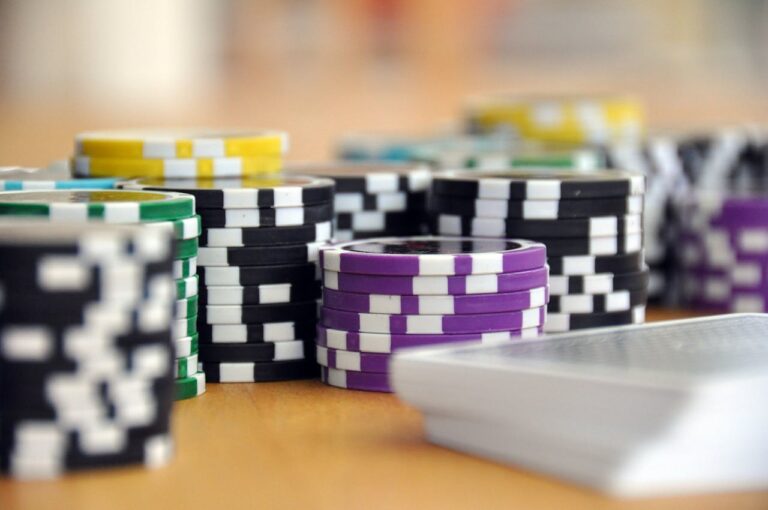Gambling has been a part of human culture for centuries, offering excitement, thrill, and the possibility of winning big. In India, two popular gambling games have captured the imagination of millions: Matka Play and Teen Patti. These games have distinct origins, rules, and fan bases, making them unique in their own right. In this comprehensive comparison, we’ll delve into the world of Matka Play and Teen Patti, exploring their histories, rules, popularity, and the cultural significance they hold in India.
Origins and History
Matka Play:
Matka Play, also known as Satta Matka, has its roots in Mumbai, India. It originated in the 1960s as a form of betting on the opening and closing rates of cotton transmitted from the New York Cotton Exchange to the Bombay Cotton Exchange. Over time, it evolved into a full-fledged gambling game, with players betting on numbers drawn from a matka, which means an earthen pot. The game quickly gained popularity in Mumbai’s bustling streets and has since become a staple in the world of Indian gambling.
Teen Patti:
Teen Patti, on the other hand, has a more traditional card game origin. The name itself, “Teen Patti,” translates to “Three Cards” in Hindi. This game closely resembles the British card game “Three Card Brag” and is believed to have been played for centuries in India. Teen Patti gained immense popularity in recent years, especially with the advent of online casinos and mobile apps.
Rules and Gameplay
Matka Play:
Matka Play is a game of chance that involves betting on numbers from 0 to 9. The game is played in rounds, with players selecting a set of three numbers and placing their bets. After the bets are placed, the winning numbers are drawn from a matka, usually a large earthen pot. Payouts depend on the accuracy of the prediction and the amount wagered. The game offers various types of bets, including single, double, and triple numbers, making it both exciting and challenging.
Teen Patti:
Teen Patti is a card game that is often compared to poker. It is typically played with a standard deck of 52 cards, with players receiving three cards each. The objective is to have the best hand possible, similar to traditional poker hands like flushes, straights, and pairs. Betting occurs throughout the game, with players deciding whether to call, raise, or fold based on their confidence in their hand. The game can be played with different variations and betting limits, making it adaptable to various preferences and skill levels.
Popularity and Player Base
Matka Play:
Matka Play has a long-established player base, particularly in Mumbai and its surrounding areas. While its popularity has waned over the years due to legal restrictions and crackdowns on illegal gambling, it still retains a dedicated following. Many enthusiasts fondly remember the heyday of Matka Play when it was a ubiquitous part of Mumbai’s culture.
Teen Patti:
Teen Patti has seen a surge in popularity, both in India and globally, in recent years. This can be attributed to the rise of online casinos and mobile gaming apps that offer Teen Patti variants. Its simple rules and similarities to poker have made it accessible to a broad audience, including those who may not have previously engaged in gambling activities. Teen Patti has become a social activity, with friends and family gathering to play, adding to its widespread appeal.
Legal Status and Regulation
Matka Play:
Matka Play’s history is marred by controversy due to its association with illegal gambling and organized crime. Recognizing the societal harm caused by the game, Indian authorities have implemented strict regulations and crackdowns over the years. Today, Matka Play remains largely illegal in most parts of India, except for a few states where it is regulated and taxed.
Teen Patti:
Teen Patti, on the other hand, exists in a legal gray area. While it is not explicitly regulated in many Indian states, it is generally considered a game of skill rather than pure chance. This classification allows Teen Patti to operate in a legal gray area, making it accessible to players in various regions of India. Online versions of the game are also available, further complicating the legal landscape.
Cultural Significance
Matka Play:
Matka Play has deep cultural roots in Mumbai’s history and has been the subject of numerous movies, songs, and stories. It symbolizes the resilience of a city that has faced challenges and adversity. Despite its legal troubles, Matka Play remains a cultural touchstone for many, representing the spirit of risk-taking and fortune-seeking in the city of dreams.
Teen Patti:
Teen Patti’s cultural significance is more recent but equally compelling. It has become a favorite pastime at family gatherings, festivals, and social gatherings. The game fosters camaraderie and friendly competition, bringing people together over cards and laughter. The advent of online Teen Patti games has made it even more accessible and widespread.
Responsible Gambling and Risks
Matka Play:
Matka Play is associated with significant risks due to its reliance on chance and lack of regulation. Players can easily fall into a cycle of addiction and financial hardship. Responsible gambling measures are almost non-existent in the Matka Play community, making it a dangerous pastime for those who are vulnerable.
Teen Patti:
Teen Patti, while less risky than Matka Play, still carries the potential for addiction and financial losses. Responsible gambling practices should be encouraged, especially with the growing popularity of online variants. Many reputable online casinos offer resources for responsible gambling to help players stay in control of their gaming habits.
Conclusion
In the world of gambling in India, Matka Play and Teen Patti stand out as two distinct options, each with its own history, rules, and cultural significance. Matka Play, rooted in Mumbai’s history, carries a certain mystique but is fraught with legal and ethical issues. Teen Patti, on the other hand, has surged in popularity in recent years, offering a more accessible and sociable form of gambling.
Ultimately, the choice between Matka Play and Teen Patti depends on individual preferences, cultural ties, and awareness of the associated risks. Regardless of the game chosen, responsible gambling practices should always be prioritized to ensure that the thrill of gambling remains a source of entertainment rather than a cause of harm.

















